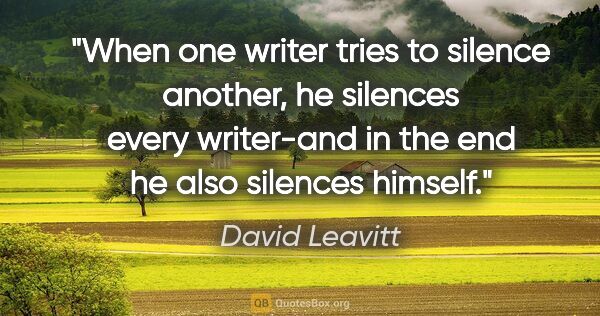Writer Quotes (page 83)


Once I start work on a project, I don’t stop and I don’t slow down unless I absolutely have to. If I don’t write every day, the characters begin to stale off in my mind – they begin to seem like characters instead of real people. The tale’s narrative cutting edge starts to rust and I begin to lose my hold on the story’s plot and pace. Worst of all, the excitement of spinning something new begins to fade. The work starts to feel like work, and for most writers that is the smooch of death.
Stephen King

...Let me say that I do think decency and civilization would insist that the writer take sides with the powerless. Clearly, there's no moral obligation to write in any particular way. But there is a moral obligation, I think, not to ally oneself with power against the powerless. I think an artist, in my definition of that word, would not be someone who takes sides with the emperor against his powerless subjects.
Chinua Achebe
Most contemporary novels are not really "written." They obtain what reality they have largely from an accurate rendering of the noises that human beings currently make in their daily simple needs of communication; and what part of a novel is not composed of these noises consists of a prose which is no more alive than that of a competent newspaper writer or government official. A prose that is altogether alive demands something of the reader that the ordinary novel-reader is not prepared to give.
T. S. Eliot
A public library is the most democratic thing in the world. What can be found there has undone dictators and tyrants: demagogues can persecute writers and tell them what to write as much as they like, but they cannot vanish what has been written in the past, though they try often enough...People who love literature have at least part of their minds immune from indoctrination. If you read, you can learn to think for yourself.
Doris Lessing

They were learning that New York had another life, too? subterranean, like almost everything that was human in the city? a life of writers meeting in restaurants at lunchtime or in coffee houses after business hours to talk of work just started or magazines unpublished, and even to lay modest plans for the future. Modestly they were beginning to write poems worth the trouble of reading to their friends over coffee cups. Modestly they were rebelling once more.
Malcolm Cowley